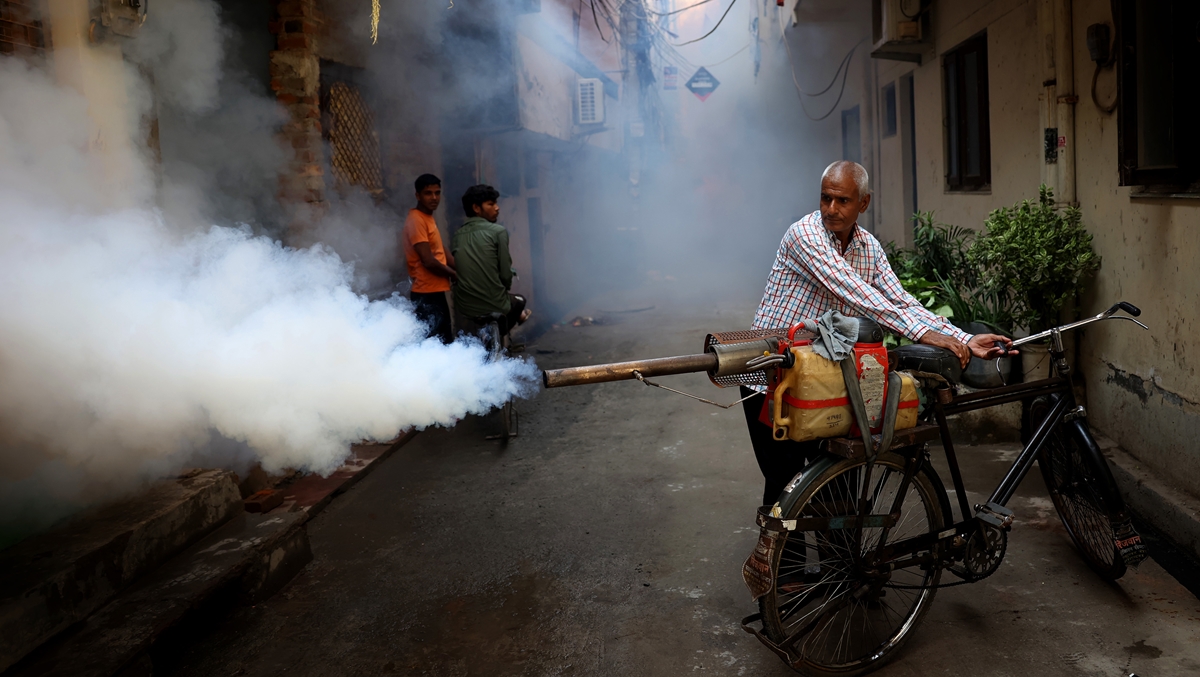More than 4,000 dengue cases have been reported in the country’s tech capital, Bangalore, in the past few days, with a staggering surge in infections among children.
While the health department is yet to release the official data on the number of children affected by the infection, a growing number of infants are being hospitalised with high-grade fever, experiencing temperatures ranging between 103 to 104 degrees.

Incessant rain and waterlogging have increased the spread of mosquito-borne viruses like dengue, malaria and chikungunya. Given that children are more likely to be outdoors — in schools, parks, or outdoor activities — it is crucial to take measures to control the spread.
So, we turned to an expert to understand the signs, symptoms and precautionary measures individuals can take to prevent the disease from escalating.
According to Dr Umesh Vaidya, senior pediatrician, Pune, a person infected with these vector-borne diseases will initially show symptoms such as common viral fever, headache, muscle pain and frequent vomiting. “Dengue may also present severe pain near the eyes, muscles, bones and joints. It may also cause skin rashes or minute bleeding spots in the skin and oral cavity,” he said.
While dengue can occur at any age — from infants to old-aged people — Dr Vaidya said that for children, poorly managed surroundings and poor personal protection play a major role in contracting the disease, thereby making prevention of utmost importance.
He added that prevention of vector-borne diseases among children involves two main components — personal protection and mosquito control.
 Mohali Deputy Commissioner said that residents should take initiative and sensitise their neighbours as well about dengue and its prevention (Express File Photo)
Mohali Deputy Commissioner said that residents should take initiative and sensitise their neighbours as well about dengue and its prevention (Express File Photo)
“Personal protection includes using window nets, mosquito nets and repellants. Additionally, dressing the child in light colours and full sleeves covering arms and legs, helps in protection,” Dr Vaidya noted.
In terms of mosquito control, the expert said that one should not allow stagnant water in and around the house, and regularly change water from coolers, birdbaths and flowerpots. Moreover, the water tank and water storage containers need to be tightly covered.
Apart from this, if the neighbourhood has fountains, swimming pools or artificial lakes, then it is important that regular maintenance is done, and water is changed to ensure no breeding of mosquitos. Every neighbourhood must control the population of mosquitos by removing breeding grounds and conducting frequent fogging.
While choosing mosquito repellants for your child, Dr Vaidya advised you to look out for the ingredient list. “Since mosquito repellants come in various forms like sprays, sticks, drops or creams, one should check for the ingredients if made from chemicals or from natural ingredients. If the repellant has DEET (diethyltoluamide), then the ideal concentration required for protecting babies and children is 10 to 30 percent, which works effectively for 2 to 5 hours,” he said, adding that children below 2 months should not be exposed to DEET.
Most Read 1Chandrayaan-3 mission: Dawn breaks on Moon, all eyes on lander, rover to wake up 2As Indo-Canadian relations sour, anxiety grips Indian students, residents who wish to settle in Canada 3Karan Johar says Sanjay Leela Bhansali did not call him after Rocky Aur Rani: ‘He’s never called me but…’ 4Gadar 2 box office collection day 40: Hit by Shah Rukh Khan’s Jawan onslaught, Sunny Deol movie ends BO run with Rs 45 lakh earning 5Shubh’s tour in India cancelled: Why is the Canada-based singer facing the music?
Similarly, lemon eucalyptus and other essential oils may protect the child from mosquitos for a few hours, however, the expert noted that allergic reactions need to be studied before applying such repellants. On the other hand, mosquito nets and rackets are considered safest for children.
ALSO READ | New study shows how dengue virus evolved in India
“Protecting children from mosquito bites is critical to prevent dengue, malaria and other diseases. Necessary precautions and use of the right measures will surely help children stay away from such ailments,” Dr Vaidya concluded.
Also ReadWorried about the baby’s low birth weight? Here are some tips13 simple home remedies for your child’s stomach acheCan you eat ginger during pregnancy? Here's what a doctor recommendsThese exercises will help you turn the baby in the womb naturally for nor…
For all the latest Parenting News, download Indian Express App.
© IE Online Media Services Pvt Ltd


